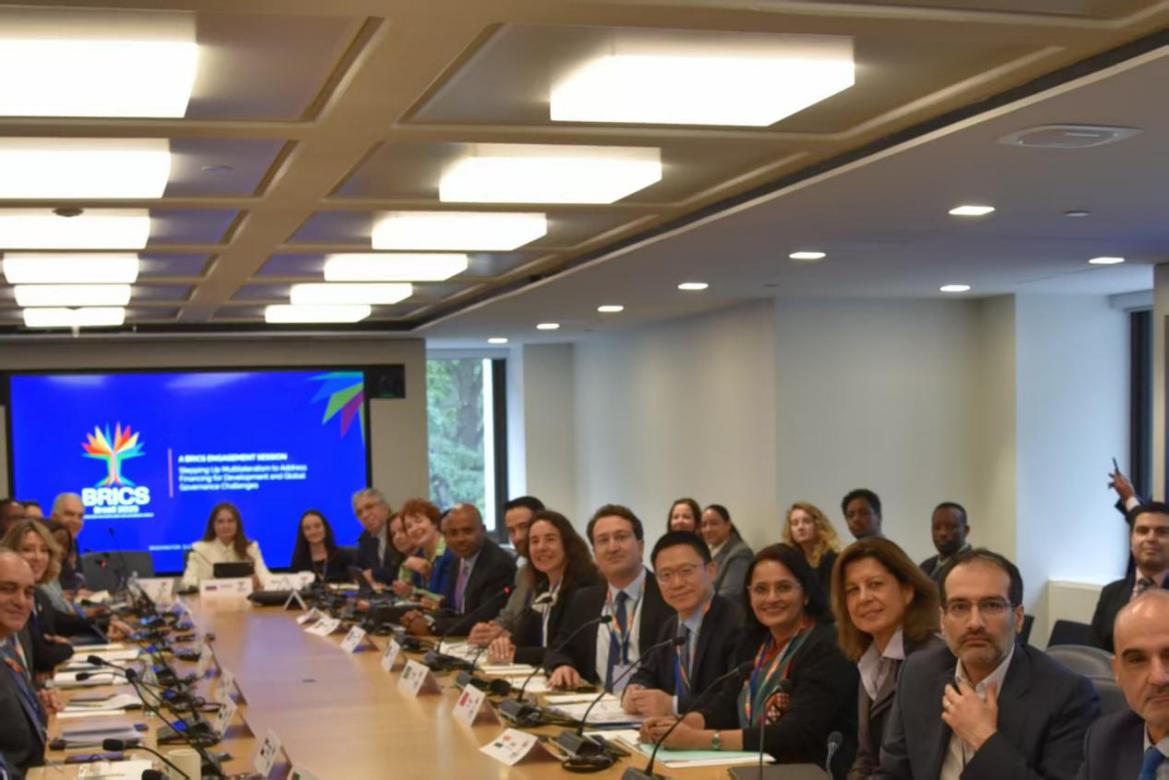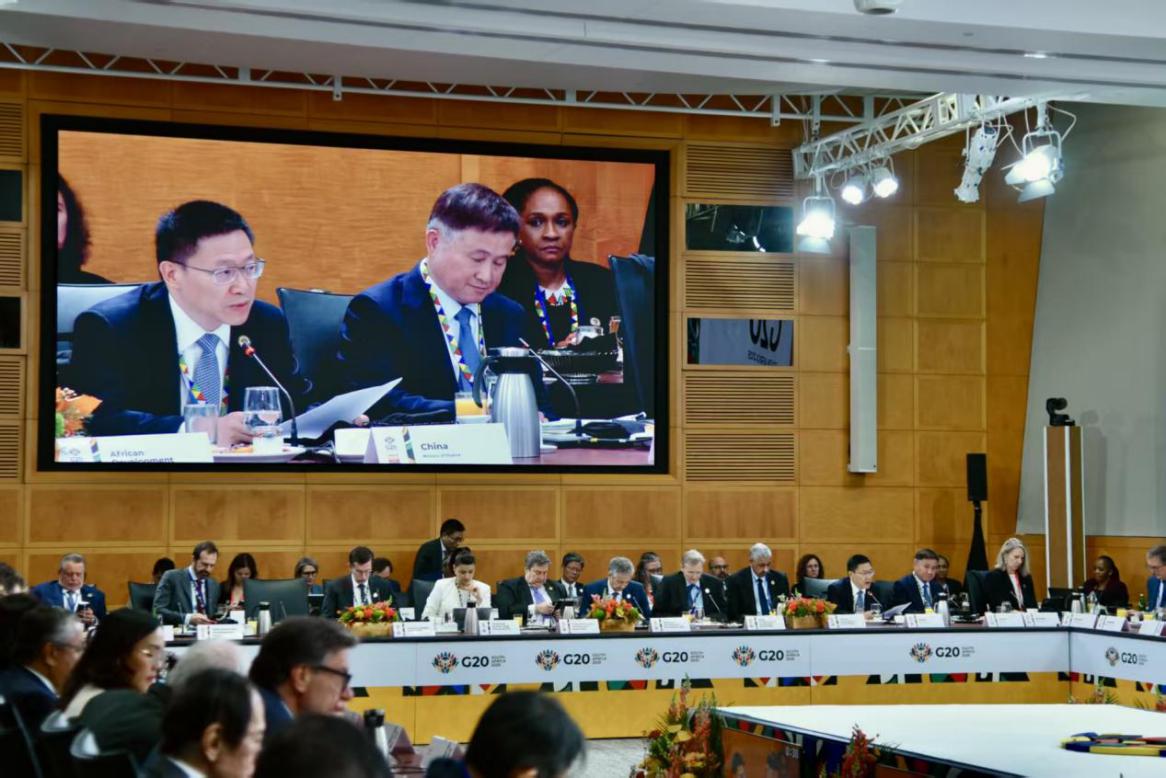

The fourth G20 Finance Ministers and Central Bank Governors Meeting under South Africa’s G20 presidency in 2025 was held in Washington, D.C. from Oct 15 to 16. Discussions centered on key global economic issues, including the macroeconomic outlook, international financial architecture, African growth and development, and financial sector issues. The meeting concluded with the release of a Chair Summary. In the margins of the meeting, Brazil, as the BRICS Presidency in 2025, convened a meeting on “Development Financing and Global Governance Challenges”, which focused on safeguarding multilateral cooperation, advancing development financing, and addressing global governance challenges. China’s Vice Minister of Finance Liao Min attended and spoke at the above meetings.
Liao emphasized the need to firmly uphold multilateralism and free trade, and support universally beneficial and inclusive economic globalization. He noted that while the global economy demonstrates resilience, countries should advance long-term structural reforms and strengthen macroeconomic policy coordination, in order to promote global economic recovery and growth. He called for further improvement of the global economic governance system and meaningful progress in the World Bank’s 2025 Shareholding Review. He urged enhancing the efficiency of debt resource utilization and mobilizing resources through multiple channels to address debt vulnerabilities and liquidity challenges faced by some developing countries, while avoiding an overly broad or excessive expansion of the scope and scale of debt treatment. He also called for deeper coordination and cooperation, as well as the sharing of development experiences, to foster a favorable external environment for growth in Africa and other developing economies.
Liao elaborated on the Global Governance Initiative proposed by President Xi Jinping in September, and introduced the stable and upward momentum of China’s economy, as well as relevant policies to expand domestic demand and advance innovation-driven development. He underscored that China remains an important engine of global economic growth.
On the sidelines of the meetings, Liao engaged in bilateral discussions with representatives from South Africa, the United Kingdom, the United States, France, Germany, Canada, and Pakistan, focusing on macroeconomic developments and multilateral and bilateral financial cooperation. He also met with representatives from the US-China Business Council, the Peterson Institute for International Economics, and Moody’s Cooperation.
DOWNLOAD: